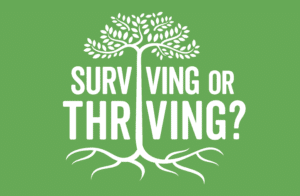Protecting mental health after receiving a diagnosis
Sometimes it can be difficult to know how to support someone who is struggling with their mental health, particularly if you don’t have any personal experience of dealing with mental health conditions yourself. Unfortunately, many people who suffer with their mental health suffer in silence. This can often lead to issues further down the line with relationships, careers or personal success.
When receiving a diagnosis of a condition which may have an impact on your continence, you could feel overwhelmed, isolated or scared. This is perfectly normal when dealing with a stressful and unknown situation. However, these emotions could lead to future mental health issues if not dealt with properly.

Tips from Mental Health Awareness Week 2019
This week is Mental Health Awareness Week and we wanted to provide some advice on some of the ways you may be able to offer support and help those around you who may be struggling with their mental health.
1. Set time aside with no distractions
It is important to provide an open and non-judgemental space with no distractions.
2. Let them share as much or as little as they want to
Let them lead the discussion at their own pace. Don’t put pressure on them to tell you anything they aren’t ready to talk about. Talking can take a lot of trust and courage. You might be the first person they have been able to talk to about this.
3. Don’t try to diagnose or second guess their feelings
While you may be happy to talk and offer support, chances are you aren’t a trained counsellor. Try not to make assumptions about what is wrong or jump in too quickly with your own diagnosis or solutions.
4. Keep questions open-ended
Say “Why don’t you tell me how you are feeling?” rather than “I can see you are feeling very low”. Try to keep your language neutral. Give the person time to answer and try not to grill them with too many questions.
5. Talk about wellbeing
Exercise, having a healthy diet and taking a break can help protect mental health and sustain wellbeing. Talk about ways of de-stressing and ask if they find anything helpful.
6. Listen carefully to what they tell you
Repeat what they have said back to them to ensure you have understood it. You don’t have to agree with what they are saying, but by showing you understand how they feel, you are letting them know you respect their feelings.
7. Offer them help in seeking professional support and provide information on ways to do this
You might want to offer to go to the GP with them or help them talk to a friend or family member. Try not to take control and allow them to make decisions.
8. Know your limits
Ask for help or signpost if the problem is serious. If you believe they are in immediate danger or they have injuries that need medical attention, you need to take action to make sure they are safe.


